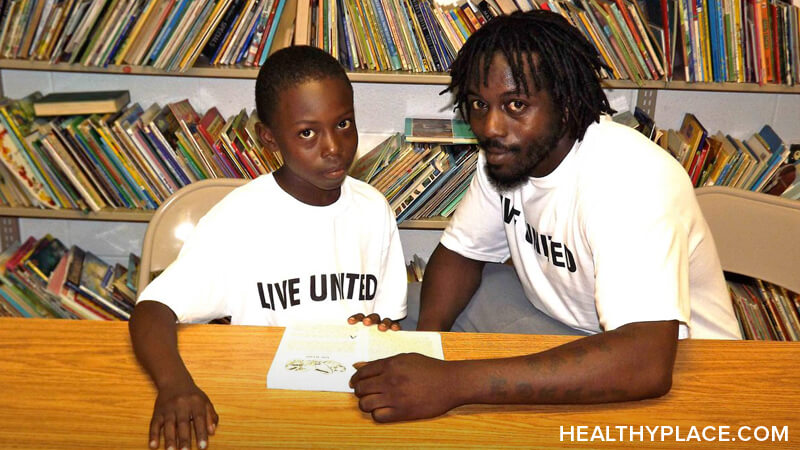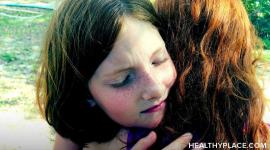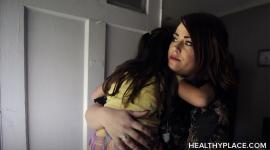What Happens When ACOAs Have Their Own Families?

When Adult Children of Alcoholics have their own families, the dysfunctional tools they used as children to survive an alcoholic parent, may come back to haunt them.
When Adult Children of Alcoholics (ACOAs) enter intimate relationships in adulthood, their feelings of dependence and vulnerability that are an important part of an intimate relationship may make them feel anxious and at-risk again. They may perceive themselves as helpless even if they are not. Beneath the level of their awareness, the ACOA may worry that chaos, out-of-control behavior, and abuse may be looming around the corner because this was their early childhood experience.
When ACOAs enter intimate relationships as adults, they may be so convinced that distress is at hand that they experience mistrust and suspicion if problems are solved smoothly. And so the pattern of strong feelings leading to emotional danger, chaos, rage, and tears is once again reinforced and passed along in a blast of triggered emotions into the present when they belong primarily to the past. At these moments, the ACOA is stuck in and reacting out of the survival parts of the brain, what is getting triggered is a sense memory from childhood with little reason and understanding attached to it. The more advanced parts of the cortical brain where thinking and reasoning take place is temporarily overwhelmed and shut down and they are locked in a reaction that is filled with unresolved emotions from the past that are getting triggered by present circumstances.
Children who have been traumatized by living with addiction become very adept scanners; they are constantly reading their environment and the faces of those around them for signs of emotional danger. If they sense emotions in another person that make them feel anxious, they may lapse into people pleasing in order to alleviate potential "danger." They may have learned as children that if they could calm and please the acting-out parent, their own day might go more smoothly; i.e., they might experience less hurt. Such people pleasing strategies also get carried into intimate relationships in adulthood. The upshot of all this is that ACOAs often lack the ability to live comfortably with the natural ebb and flow of intimacy.
Traumatic Bonds
Those who live in families that are traumatizing often form what is known as traumatic bonds. If someone is unable to escape chronic traumatic abuse, they are more likely to develop both traumatic bonds and PTSD. They may become emotionally numb as part of the trauma defense and their capacity for real intimacy may become disrupted by the regular trauma. The intensity and quality of connectedness in addicted/traumatizing families can create the types of bonds that people tend to form during times of crisis.
Alliances in addicted families may become very critical to one's sense of self and even survival. Alliances can become very intense among children, for example, who are feeling hurt and needy and without proper parental support. Or traumatic bonds may simply get seared into place as family members repeatedly face threatening, frightening and overwhelmingly painful experiences and hunker down in emotional dugouts together until the barrage of explosions passes. As the family member's fear increases so does their need for protective bonds.
Trauma may lead people both to withdraw from close relationships and to seek them desperately. The deep disruption of basic trust, the feelings of shame, guilt and inferiority combined with the need to avoid reminders of the trauma may foster withdrawal from close relationships, social life, or healthy spiritual beliefs. But the terror of the traumatic event, such as living with addiction and the chaotic behavior that surrounds it, intensifies the need for protective attachments. The traumatized person therefore frequently alternates between isolation and anxious clinging to others. Factors that can contribute to bonds becoming traumatic are:
- If there is a power imbalance in the relationship.
- If there is a lack of access to outside support.
- If those who we would naturally go to for caring and support are unavailable or are, themselves, the abusers.
- If there are wide inconsistencies in styles of relating that induce both states of high need/anxiety alternating with high need/fulfillment.
All too often, the confusion in these types of relationships is that they are neither all good nor all bad. Their very unevenness can make the nature of the bond all the more difficult to unravel. In the case of addiction, this is an all too familiar dynamic. The addicted parent, for example, may swing between being attentive, generous and caring to being abusive, neglectful and rejecting. One minute they are everything one could wish and the next they are miserably disappointing. Without supportive interventions - usually from outside the family - these types of bonds become styles of relating that get played out in relationships throughout life. Traumatic bonds formed in childhood tend to repeat their quality and contents over and over again throughout life.
Find more comprehensive information about Drug Abuse and Addiction and Alcohol Abuse and Addiction.
Source:
(Adapted from The Process Study Guide, with permission of the author, for Congregational Leadership Training, Detroit, MI - 1/24/06)
About the author: Tian Dayton M.A. Ph.D. TEP is the author of The Living Stage: A Step by Step Guide to Psychodrama, Sociometry and Experiential Group Therapy and the bestseller Forgiving and Moving On, Trauma and Addiction as well as twelve other titles. Dr. Dayton spent eight years at New York University as a faculty member of the Drama Therapy Department. She is a fellow of the American Society of Psychodrama, Sociometry and Group Psycho ¬therapy (ASGPP), winner of their scholar's award, executive editor of the psychodrama academic journal, and sits on the professional standards committee. She is a certified Montessori teacher through 12 years of age. She is currently the Director of The New York Psychodrama Training Institute at Caron New York and in private practice in New York City. Dr. Dayton has masters in educational psychology, a Ph.D. in clinical psychology and is a board-certified trainer in psychodrama.
APA Reference
Staff, H.
(2021, December 16). What Happens When ACOAs Have Their Own Families?, HealthyPlace. Retrieved
on 2026, January 14 from https://www.healthyplace.com/addictions/family-impact/acoa-own-family



